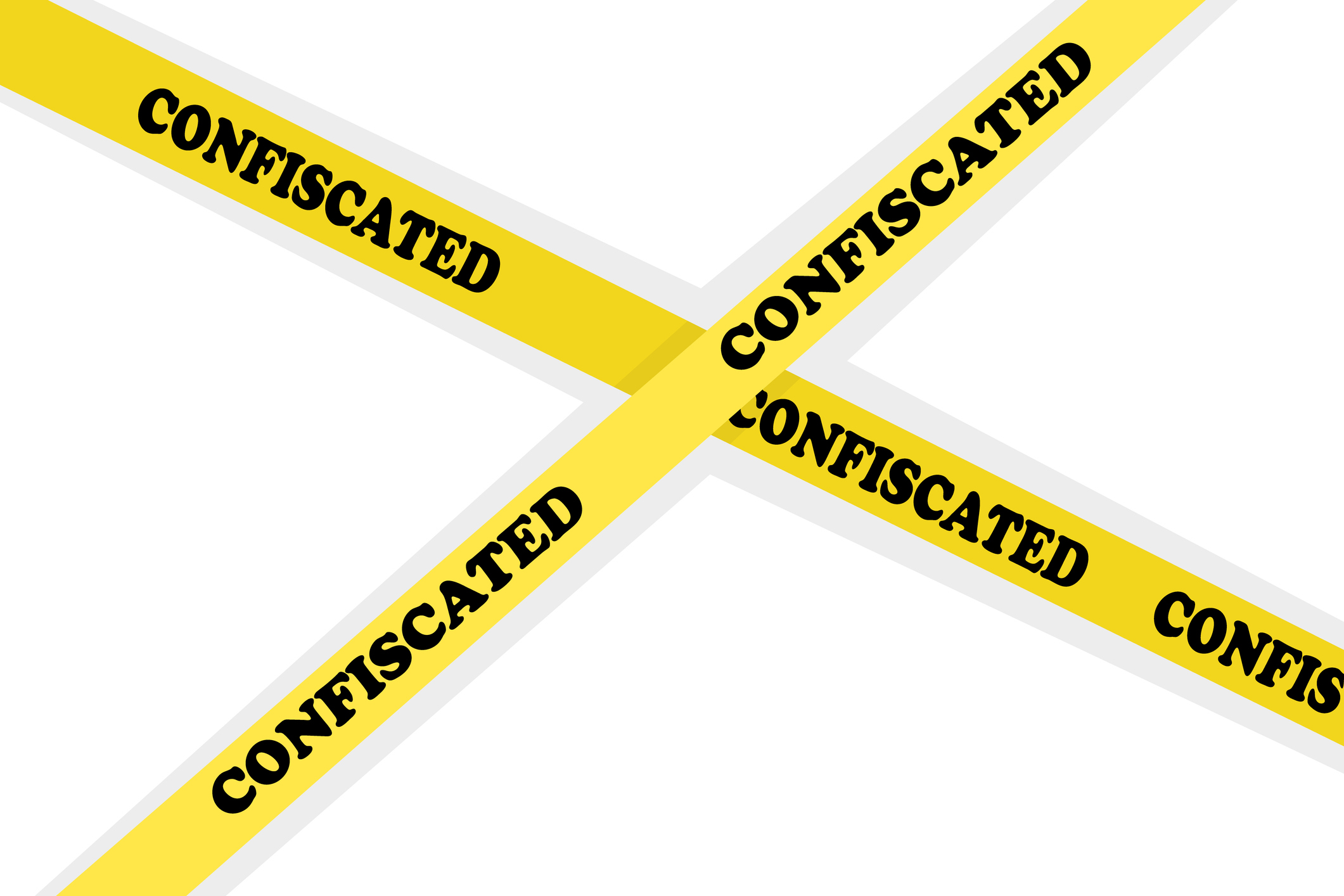Can Both Spouses Collect Social Security Benefits?
Both spouses can collect Social Security based on their individual earnings records and the age at which they claim benefits.


Profit and prosper with the best of Kiplinger's advice on investing, taxes, retirement, personal finance and much more. Delivered daily. Enter your email in the box and click Sign Me Up.
You are now subscribed
Your newsletter sign-up was successful
Want to add more newsletters?
If you’re age 62 years or older, Social Security can provide you with a source of income when you retire or when you can no longer work due to a disability.
When it comes to benefits, both you and your spouse can receive Social Security, which is based on each of your individual earnings records and at what age you claim benefits. In other words, one spousal payment doesn't offset or affect the other.
That aside, Social Security has a maximum family benefit, which is the largest amount you can collect monthly based on your earnings record.
From just $107.88 $24.99 for Kiplinger Personal Finance
Become a smarter, better informed investor. Subscribe from just $107.88 $24.99, plus get up to 4 Special Issues

Sign up for Kiplinger’s Free Newsletters
Profit and prosper with the best of expert advice on investing, taxes, retirement, personal finance and more - straight to your e-mail.
Profit and prosper with the best of expert advice - straight to your e-mail.
There's a formula for determining a beneficiary's maximum benefit amount — currently 150% to 180% of the primary beneficiary’s full retirement benefit, according to the Social Security Administration (SSA).
How does Social Security work for married people?
Retirees claiming Social Security have options. Married couples might have more options than a single person because each person can claim benefits at different dates and might also be eligible for spousal benefits.
After age 62, for every year you delay taking Social Security up to age 70, you could receive up to 8% more in future monthly payments, according to Fidelity. However, once you turn 70, the increases stop.
Here's what that looks like for an estimated monthly benefit of $1,000 at full retirement age.
Birth year | Your FRA | Months from age 62 to full retirement age | At age 62: A $1,000 retirement benefit would be reduced to | At age 62: Your retirement benefit is reduced by | At age 62: Your $500 spouse's benefit would be reduced to | At age 62: spouse's benefit is reduced by |
1943 - 1954 | 66 | 48 | $750 | 25% | $350 | 30% |
1955 | 66 and 2 months | 52 | $741 | 25.83% | $345 | 30.83% |
1956 | 66 and 4 months | 52 | $733 | 26.67% | $341 | 31.67% |
1957 | 66 and 6 months | 54 | $725 | 27.50% | $337 | 32.50% |
1958 | 66 and 8 months | 56 | $716 | 28.33% | $333 | 33.33% |
1959 | 66 and 10 months | 58 | $708 | 29.17% | $329 | 34.17% |
1960 and later | 67 | 60 | $700 | 30% | $325 | 35% |
Each spouse can claim benefits. However, the amount they receive is based on their work records, or they can choose to claim up to 50% of their spouse's benefit at full retirement age.
This strategy, known as the 62/70 split, works this way: The spouse earning the lower wage starts receiving benefits at age 62, while the higher-earning spouse delays receiving benefits until age 70.
With this approach, the higher earner receives a spousal benefit while waiting, which increases both their benefit and the survivor benefits for the other spouse. Ultimately, it's a win-win for everyone.
However, before choosing this option, find out how much your estimated benefits would be at full retirement age.
How Social Security benefits can be optimized for married couples
- Both you and your spouse claim Social Security benefits at FRA: By waiting to claim Social Security until full retirement age (FRA), you're guaranteed 100% of your benefits.
- Both you and your spouse claim Social Security benefits before FRA: This option works if you need the income immediately, as if you've experienced an unexpected health issue, or if you think you might have a shorter life expectancy, you might want to claim your benefits earlier.
- The higher-earning spouse waits to claim Social Security benefits: This works if you want to optimize survivor benefits, or if your spouse has never held a job that paid Social Security taxes. Consider claiming the spousal benefit if there are large differences in earnings, as this can sometimes work out better than claiming your benefits.
- Both you and your spouse wait to claim Social Security benefits: The strategy to delay benefits is a good option if you and your spouse want to continue working for a few more years, you expect to live a long life, have similar incomes, or you don't need the money now, but want to receive more money throughout your retirement.
Can you claim both retirement and spousal benefits?
According to the Social Security Administration, you and your spouse must be married for at least one year before qualifying for spousal benefits. If you parent your spouse’s child, the one-year rule doesn't apply.
If you are or were entitled to benefits under Social Security or the Railroad Retirement Act (PDF) in the month before you got married, you're also entitled to your spouse’s benefits.
However, a divorced spouse must have been married for 10 years to get the spousal benefits.
What you need to know:
- You must be at least age 62 to claim spousal benefits, and you and your spouse must have been married for at least one year, in most cases.
- You can’t collect spousal benefits unless your spouse already receives Social Security. If your spouse claims their benefit, you are jointly entitled. This means you apply for both retirement and spousal benefits simultaneously, getting the higher of the two amounts.
- At age 62, you can receive spousal benefits equal to 32.5% of your spouse’s full retirement age benefit amount. The amount you receive increases each month until you reach full retirement age. You can collect 50% of your partner’s benefit at that time.
- Waiting to claim your Social Security benefits enables the benefit amount to grow. If your spouse draws spousal benefits on your account, it won't affect what you get from Social Security.
How does remarriage affect Social Security benefits?
Remarriage can have an impact on Social Security benefits. But the result will likely depend on your work record, your age and whether you're receiving benefits based on your previous spouse's work record.
Here are a few ways remarriage might affect Social Security benefits:
If you’re receiving spousal benefits based on your ex-spouse’s work record, remarriage can change things:
- If you remarry, you can no longer collect your ex-spouse's benefits. That said, you might be able to claim your new spouse's Social Security benefits.
- If you don't remarry, you can continue to receive benefits based on your ex-spouse's record, but you must be age 62 and older and meet the other requirements for divorced spouse benefits.
- If your new spouse's benefits are higher, you could receive a higher spousal benefit based on your new spouse's earnings history.
If you're receiving survivor benefits from your deceased spouse, remarriage can also impact benefits:
- If you remarry after age 60 (or age 50 if you're disabled), you remarry and continue to receive survivor benefits. If you remarry before age 60, you lose eligibility for those benefits.
- If your new spouse's earnings record is higher, you might be able to switch to their Social Security benefits in the future, depending on what works out best for you.
If you're receiving Social Security benefits based on your work record, then remarriage should not affect your benefits. Your benefits are determined by your work history and how much you've paid into the system through the years.
What is deemed filing?
The term "deemed filing" means that if you apply for one type of benefit, say your retirement benefit or a spousal benefit, when you're eligible for both, you’re automatically considered by the SSA to be applying for both.
But here’s the catch. You don’t get to pick and choose one to maximize your payout. You’ll get the higher of the two benefit amounts, not both combined.
This rule kicks in to prevent people from working the system, like collecting spousal benefits while letting their retirement benefits grow.
Before the Bipartisan Budget Act of 2015, some spouses received spousal benefits at full retirement age (FRA) while letting their retirement benefits grow by delaying filing. After the new Act went into effect, it was no longer possible to receive one type of benefit while at the same time earning a bonus for delaying the other benefit, which is called double dipping.
For more information on deemed filing, check out: Filing Rules for Retirement and Spouses' Benefits.
Delay, claim early or claim later?
Sometimes it pays to wait until your full retirement age or later to claim Social Security. Other times, in the case of poor health or a short life expectancy, it can pay to claim benefits early, at age 62.
For example, let's say that George and Frances are both 62. Their FRA is 66 and eight months. At FRA, their estimated monthly benefit will be $2,000. If they take Social Security early at age 62, their estimated monthly benefit will be $1,500, a 25% reduction. Both spouses expect to live to age 72 due to health issues.
Claiming at 62:
Both George and Frances claim benefits at age 62 and begin receiving $1,500 per month. The annual benefits for each spouse will be $18,000 for the year ($1,500 times 12). The total benefits they will receive over 10 years (age 62 to 72) will be $180,000 (for each spouse) or $360,000 total for both spouses.
Claiming at FRA (66 and eight months)
If George and Frances wait until full retirement age (66 and 8 months) to start claiming benefits, their monthly benefit will be $2,000. However, they'll only receive payments for five years (from age 66 and eight months to age 72) since their life expectancy is 72.
That means the benefits for each spouse at FRA will be $2,000 per month or $24,000 per year. Their total benefits over 5 years (age 66 and eight months to 72) will be $120,000 per individual or $240,000 for both spouses.
What does this mean? By claiming Social Security at age 62, both spouses would receive a total of $180,000 in benefits in the next 10 years. That would result in a combined total of $360,000 for the couple. However, if they waited until their FRA (66 and 8 months), they would receive $240,000 in benefits over five years.
Since George and Frances have a life expectancy of only 72, they receive more total lifetime benefits by claiming early at age 62 ($360,000) compared with waiting until FRA ($240,000).
When is the best time to collect benefits?
Before claiming benefits, you must pay Social Security taxes for at least 10 years. You can start receiving benefits as early as 62, and the amount you receive is based on your earnings each year. If your spouse has a lower earning record or no record at all, they can collect on your earnings record when they turn 62, and vice versa.
There are several reasons to take Social Security early, at age 62. If you decide to retire at this age, the benefit payment might be a necessary source of income each month. You could also be concerned that you won’t live long enough to collect your full benefits due to a serious health condition.
On the other hand, the earlier you start to collect Social Security, the less you’ll receive each month.
Planning ahead for retirement
Although many people don’t start planning for retirement until they reach their 60s, it’s always a good idea to plan when you're young and to start putting money away in a savings account, IRA or 401(k).
Most financial planners recommend replacing about 80% of your pre-retirement income to maintain the same lifestyle after you retire.
Log in to the Social Security site to apply for benefits and check eligibility.
We curate the most important retirement news, tips and lifestyle hacks so you don’t have to. Subscribe to our free, twice-weekly newsletter, Retirement Tips.
Related Content
Profit and prosper with the best of Kiplinger's advice on investing, taxes, retirement, personal finance and much more. Delivered daily. Enter your email in the box and click Sign Me Up.

For the past 18+ years, Kathryn has highlighted the humanity in personal finance by shaping stories that identify the opportunities and obstacles in managing a person's finances. All the same, she’ll jump on other equally important topics if needed. Kathryn graduated with a degree in Journalism and lives in Duluth, Minnesota. She joined Kiplinger in 2023 as a contributor.
-
 What to Expect from the February Jobs Report
What to Expect from the February Jobs ReportThe February jobs report will be released Friday morning. Here's what economists expect the data to show.
-
 State Farm Giving Out $5 Billion in Refund Checks: Are You Getting One?
State Farm Giving Out $5 Billion in Refund Checks: Are You Getting One?Drivers in some states will soon see a $100 check from State Farm. Here's what you need to know.
-
 We're 65. Should we give our kids their inheritance now?
We're 65. Should we give our kids their inheritance now?We have $3.9 million saved. Our adult children are struggling to pay for daycare and buy a home. Should we give them an advance on their inheritance?
-
 It's Time to Redefine Retirement for Retirees With $500,000 to $5 Million: Here's How
It's Time to Redefine Retirement for Retirees With $500,000 to $5 Million: Here's HowRetirees with $500,000 to $5 million in assets need a different approach to keep their house and cover ever-increasing health care expenses, including long-term care, without taking too much risk and paying too much in taxes.
-
 Fee-Only Financial Advice: Do You Really Know What It Means?
Fee-Only Financial Advice: Do You Really Know What It Means?How does fee-only financial advice differ from fee-based or commission-based advice? Knowing the difference is a critical step toward receiving unbiased help.
-
 Longevity Advice for Women, According to an Expert
Longevity Advice for Women, According to an ExpertAn interview with aging expert Maddy Dychtwald on longevity advice for women.
-
 Safe or Seizable?: The IRA & Bankruptcy Protection Quiz
Safe or Seizable?: The IRA & Bankruptcy Protection QuizQuiz Depending on the type of IRA you own and/or how you inherited it, your "safe" money might actually be on the table for creditors.
-
 How to Turn a $1 Million Nest Egg Into a Lifetime Income Machine
How to Turn a $1 Million Nest Egg Into a Lifetime Income MachineThe paychecks may stop, but the income shouldn't. Master the art of the "income machine" to fund your dream retirement.
-
 How I Managed Decluttering My Paperwork After Retiring
How I Managed Decluttering My Paperwork After RetiringOr: Why you don't need to keep tax returns from your 20s and 30s.
-
 I'm a Retirement Editor: Here's the Investing Advice I Gave My Son
I'm a Retirement Editor: Here's the Investing Advice I Gave My SonAs a veteran retirement investor, I'm sharing this advice for your own adult children or grandchildren.
-
 Are You Honest With Your Financial Adviser? Why Hiding the Truth Can Cost You
Are You Honest With Your Financial Adviser? Why Hiding the Truth Can Cost YouHiding assets or debt from a financial adviser damages the relationship as well as your finances. If you're not being fully transparent, it's time to ask why.